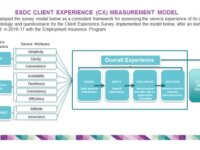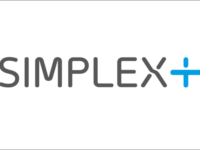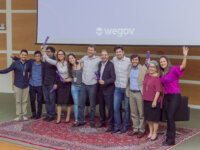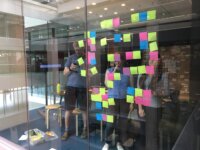The Client Experience Measurement Survey Model was developed by Employment and Social Development Canada to gather and analyse client feedback to improve service delivery to its clients. Canadians have been able to express their views on government programs and services, which have informed the way programs and services are designed and delivered. The survey allows the tracking of service satisfaction, ease of access, effectiveness of service delivery, and the experience of particular programs…
Innovation Tag: Process Facilitation and Co-design
The Indigenous Early Learning and Child Care (ELCC) Framework is innovative because it represents a promising practice in the development of a comprehensive policy, program and implementation strategy that was co-developed with the Government of Canada and Indigneous peoples. The document recognizes the value of Indigenous-led, culturally-grounded programs and that supports their health and wellbeing, spiritual, social and educational development, and language and culture.
With a citizen-centric approach and a strong focus on co-creation, SIMPLEX is a simplification and modernization program focused on improving public service efficiency and designed to facilitate the citizens and businesses everyday life, and their interaction with the public administration.
Launched in 2006, it had several editions since then and resulted in the implementation of hundreds of initiatives that cut red tape, reduced context costs and used ICT to deliver better public services.
Case Study
Construction of an experimental and co-creation research methodology for co-operative governance in…

The prolonged economic crisis in Europe has led to a growing feeling of alienation among citizens from the main decision-making centres. The co-creation research methodology for co-operative governance is an innovative approach to stakeholder engagement in which policymakers and researchers work as a team in dialogue spaces configured to address different territorial challenges. A participative, open and collaborative governance for the economic development of Gipuzkoa is therefore being built.
Case Study
Speak up via WhatsApp: A Qualitative WhatsApp Survey of Syrian Refugees and Lebanese Host…

The United Nations Development Programme Lebanon used WhatsApp to conduct qualitiative surveys to listen to Syrian refugees in Lebanon dealing with conflicts with the local Lebanese community. Using Whatsapp is an effective tool for collecting qualitative data from vulnerable communities at scale. WhatsApp is widely used, with 84% of refugee households in Lebanon on WhatsApp. WhatsApp's voice message function allowed us to send survey questions as voice messages and collect people’s stories…
All cars on Australian roads must have compulsory insurance (CTP). In the ACT, this insurance was expensive, coverage limited, and most claims needed to be settled in the courts. democracyCo designed and delivered a Citizens’ Jury and extensive stakeholder engagement process to develop a improve the scheme. Over 7 months 50 Canberrans worked with a group of stakeholders to design the improved scheme, which the Government committed to implement.
The frameworks for creating and managing the rule of government, as reflected in policies, legislation and regulation, are still based on a paper paradigm. In a digital world this creates poor service experiences and often the intent of a policy is not achieved. Instead if we co-design authoritative machine-consumable rules we can provide better services for citizens, better delivery of policy intent, and enable communities, NGOs and private sector to be part of a government service ecosystem.
HubGov is an interinstitutional program of innovation in Government that has the participation of institution from the three spheres and three powers. Through a learning trail in innovation and intrapreneurship skills, each institution comes up with a complex challenge and at the end of the program presents a solution proposal to this challenge.
The Government Digital Service and the Ministry of Housing, Communities and Local Government launched the Local Digital Declaration to support and unite local authorities around a shared understanding of good digital practice.
It is a unique call to action that addresses the legacy IT contracts, isolation of procurement practices and siloed digital projects that have left local government services vulnerable to high delivery costs and low customer satisfaction for the public they serve.
Every week millions of people use the UK government's GOV.UK website to do complex and sometimes life-changing tasks, such as learning to drive, getting a visa, or starting a business.
In the past, finding the guidance, forms and online services you needed could be difficult and time-consuming.
Step-by-step navigation is a new feature on GOV.UK that allows any service to be represented as a series of simple steps.





